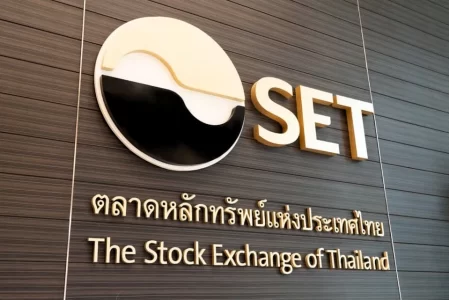On Monday, Thailand’s baht fell to a seven-month low as political instability hampered investor appetite, while most other developing Asian currencies fell against a stronger dollar after strong US data alleviated recession fears.
Equities in the region were mostly down, with shares in Seoul falling 0.8%, while those in the Philippines and China fell 0.3% and 0.5%, respectively.
The Thai baht fell 0.6% to its lowest level since November 30, 2022, as questions remain over whether the top candidate can receive enough votes to become prime minister in the new parliament’s first session next week.
“The (Move Forward) coalition is unlikely to have the necessary votes to form a new government,” said Alvin Tan, head of Asia FX strategy at RBC Capital Markets.
Tan noted that if Thailand does not form a new government by next week, the political deadlock and instability will continue.
The Bank of Thailand (BoT) announced that it will relax foreign exchange controls further in the second half of this year to promote capital outflows as the baht remains volatile. This year, the currency has lost 2.2%.
In other currency news, the South Korean won declined 0.3%, while the Philippines peso and Singapore dollar fell 0.2% and 0.1%, respectively.
In the United States, consumer confidence rose in June to its highest level in over a year and a half, showing that the economy remained on firm ground amid fears of a recession.
“All major data in the US definitely raises bets that the US Fed will hike interest rates again in July and that they will not cut interest rates quickly this year,” Tan added.
The Chinese yuan rose 0.04% after hints that the central bank is growing increasingly concerned about the currency’s recent decline.
According to TTB Bank analytics, low-yielding stocks, slow economic growth, and political uncertainty are three fragile fundamental factors that have discouraged investors from continuing to invest in the Thai stock market, resulting in net outflows of more than 100 billion baht of foreign funds in the first half of 2023.
The think tank of TMB Bank says the country’s stock market is entering a bear market, as evidenced by the index’s continuing slide to below the crucial resistance level of 1,500 points.
The Stock Exchange of Thailand (SET) index fell below 1,500 points, the lowest level since April 2021, while trading volume was low, at roughly 30-40 billion baht per day, compared to a high of 100 billion baht per day.
Furthermore, international investors continued to accrue net sells of more than 107 billion baht during the first half of this year, while ordinary investors, the majority of whom had net buys, saw a significant reduction in trading volume.
In the first six months, the number of active accounts declined steadily to only 980,000 every month, compared to as much as 1,300,000 when the market was thriving. According to TTB analytics, the drop was also influenced by global monetary policy tightening, which caused foreign funds to flee Thailand’s stock market.
“The phenomenon that foreign investors continue to have a net sell may not be just temporary, because Thailand’s fundamentals have become fragile over the past several years,” TTB analytics stated.
Three major elements influence investing and the baht
To begin with, share prices are high, trade is concentrated in specialised industries, and overall returns are poor.
Second, prior to the epidemic, the economy had begun to slow, resulting in a lack of incentive for stock investments. Finally, the protracted lack of political stability has harmed investor confidence.
Foreigners have been net sellers in the country’s stock market almost every year since 2013, including election years. Foreigners typically sold some of their equities in the run-up to an election, but then repurchased them after the votes closed.
This year’s election, however, was unique in that foreigners continued to sell more than 50 billion baht after the May 14 election. According to ttb analytics, this expressed concerns about political instability.
Political insecurity may result in a lack of consistency in policy implementation and harm foreign investors’ long-term confidence, as evidenced by a steady decline in foreign direct investment since 2013, causing Thailand to lag behind fellow Asean member states, particularly Vietnam and Indonesia.
Nonetheless, TTB Bank analytics believes the SET index has a chance to recover in the second half of this year because the new government’s economic stimulus programmes would assist restore confidence once the economy has recovered from shocks.






